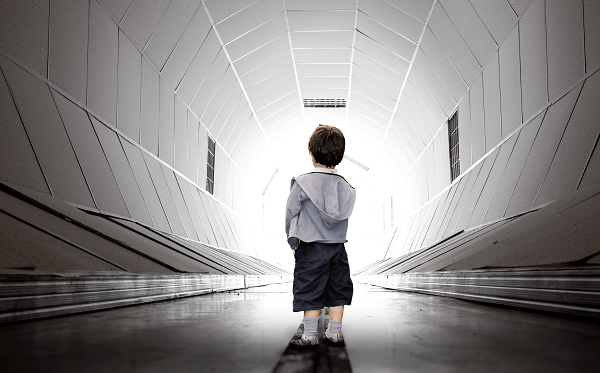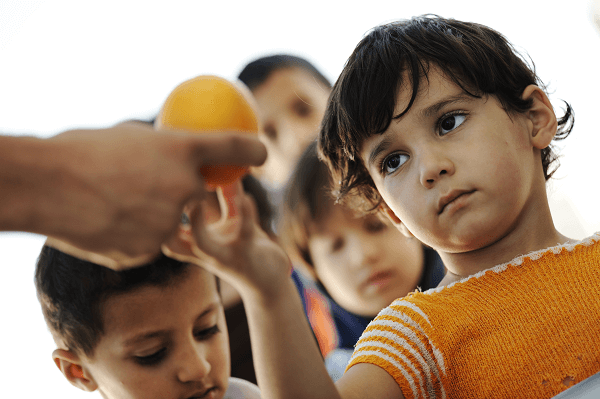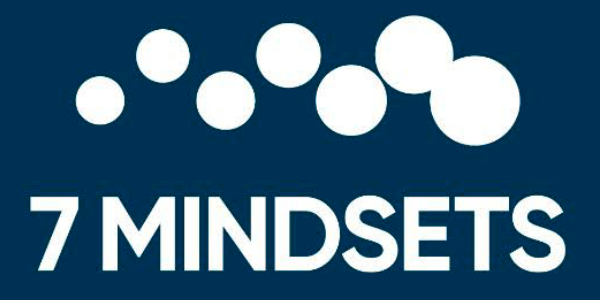You know what keeps me up at night? The idea that the comfortable life my kids have is doing nothing to help them grow into motivated and resilient adults.
A good friend of mine is a therapist, and, not long ago, he described an alarming change he’s observed over the past 30 years in his practice.
In the 1980s, he found himself working with a lot of teens who had run away from home. These were kids who’d decided they’d be better off taking on the world and living on their own. Not a great scenario, though impressive from a personal accountability perspective.
Today, almost all his patients are twenty-something millennials who’ve failed to launch. These young adults never would’ve considered running away, because the very thought of being on their own is absolutely terrifying. Instead, they stay comfortably under their parents’ roofs with three meals a day, a nice bed and few real responsibilities.
This may sound like a nice existence, but nothing could be further from the truth. From where I stand, it sounds like the beginning of an epidemic.
Modern Positive Psychologists have learned the essential role of self-actualization in the pursuit of individual happiness. Doing work that matters to us and maintaining independence are as important to happiness as regularly experiencing high emotions.
Furthermore, the homebodies who never break out are more likely to suffer anxiety, malaise and depression at previously unseen levels. It’s not a good life, and it’s one that none of us wants for our own kids.
How can we reverse this alarming trend? That was exactly the question behind a three-year research effort our team conducted. We wanted to learn what it is that allows some individuals to find true happiness while so many others suffer.
So what’s missing? How can we alter our most obvious parenting mistakes, and change the negative trends that are afflicting more and more of our youth?
We learned that happiness has little to do with what you know or where you come from, and almost everything to do with how you think. The keys to happiness and success are our mindsets. And, therefore, the mindsets we’re teaching our kids.
The most surprising result of our research was learning that most of us are actually thinking and acting in direct opposition to the mindsets that will lead to the lives we’re searching for. Worse yet, many of us are inadvertently imparting these counter-mindsets to our children, just as our parents unknowingly did with us.
You might resist what I’m about to say, you may even disagree, but if you look deeply enough, I think you’ll recognize the truth of what I’m talking about. I myself battle these counter-mindsets every day, and often catch myself feeding the same garbage to my own children.
So, what are the huge parenting mistakes we’re all probably making?
We’re Stealing their Dreams
Too many parents and teachers put low ceilings on their children’s lives by managing their expectations to protect them from disappointment. The problem is, we may be stealing their hopes and diminishing their initiative.
Virgil said, “Fortune favors the bold,” and this is perhaps the most important perspective we can take toward how we think, act, and live. Because our research (and the research of many others) shows that our lives become exactly what we expect them to be.
With that in mind, it’s critical that we make sure our children have high expectations for life and take bold action toward reaching their dreams.
Here’s an example:
A good friend of mine is an extraordinary teacher who runs a program with inner city boys called “A League of Extraordinary Gentleman.” The program has had tremendous success in transforming the lives of youth who previously had very low expectations for what their lives could become.
On the first day, the students read Shakespeare. Further on in the program, they discuss world history, quantum physics and philosophy. The objective is simple: show them what they’re capable of and help them understand and believe they have as much potential as anyone else.
Within days, through a few conversations, my friend is able to permanently transform the trajectory of these boys’ lives by instilling an awareness of and belief in what they’re capable of achieving.
Far more people than most of us realize never approach the potential of their lives because their expectations are limited. They believe that they won’t go far, that they have few options, and that they’ll achieve little… and that’s what happens.
The first and most essential step in motivating our kids and preparing them for life’s challenges is to raise their expectations and belief in themselves, the people around them, and their future.
We’re Fostering Inauthenticity
Most of us have preconceived notions of what success looks like. It often involves a great college, a steady job, a happy marriage, and a nice house, possibly with a couple of kids and a dog.
Unfortunately, our own ideas of success may not resonate the same way for the next generation. But our research tells us that, by and large, we parents and educators are unconsciously guiding our youth toward living disingenuous lives that fit our vision of success.
We need to stop steering our children toward living the lives that we or society imagine for them. Instead, we should foster environments in which they can live authentically, pursuing their own visions of happiness and success on their own terms, no matter how strange and foreign those ideas might appear to us.
Consider my new favorite quote by educator and civil rights leader Howard Thurman:
“Don’t ask what the world needs. Ask what makes you come alive, and go do it. Because what the world needs is people who have come alive.”
It’s essential that we yield to the intrinsic nature of our kids and students, rather than try to steer them (unconsciously or not) to ideals created by our own egos.
In other words, we need to listen more and suggest less.
Stop dreaming about your child’s future. Those aren’t your dreams to dream, and they never will be.
Be with them, guide them, coach them, and help them uncover the unique and wonderful aspects of themselves. Then help them express who they are to the world.
We’re Creating Walls
Every time you passionately preach a philosophy to your child, hoping to provide the benefit of your experience and maturity, you’re reducing the potential of their lives. This is true of patriotism, religion, political orientation, even extreme loyalty to a sports team.
Maybe it sounds ridiculous, but our research indicates that this is part of a severely hampering counter-mindset, and one that’s highly pervasive in our society.
I have a friend who once decided not to do business with someone because the other individual’s favorite football team was his own favorite team’s biggest rival. The loyalty he felt for his team had been instilled by his father when he was very young, and he proudly told me he’d never do business with anyone that rooted for their rivals.
Maybe it doesn’t sound like a big deal… but what if the individual my friend skipped doing business with could’ve become the most critical business partner of his life? Maybe that person could’ve helped my friend’s business meet its biggest goals, and enabled him to reach some of his biggest personal dreams as a result. You just never know.
That’s a fairly harmless example, but there are other more serious ones that you can imagine as easily as I can:
- The young woman with a genius IQ being raised by parents who don’t believe that women belong in the workplace.
- The young man who’ll miss out on making some of the greatest friends of his life because of his family’s religious biases.
The moment we close ourselves off from connecting with others, we impose limitations on our lives. You just don’t know what relationship might open the next door in your life, so why in the world would you ever shut someone out based on a belief that was given to you by someone else?
As adults, it’s our choice to make. But we’re not giving our kids the opportunity to embrace open-mindedness by filling them with our own ideals from a young age.
Try to remember the difference between sharing the benefit of your experience and grooming your kids to be copies of yourself.
We’re Making them Victims
The greatest gift we can give our children is the ability to live without us. And the best way for us to do that is to teach them the value of failing.
Our children are going to fail. We all know this, and we’d rather it take place under our roof so we can be there to support them and prevent anything from becoming truly serious. We love them so much that we just can’t bear to see them suffer… when that’s exactly what we need to allow them to do.
You’ve probably heard the term “helicopter parenting” associated with parents who are always ready to swoop in and make sure no feelings get hurt or suffering takes place.
It certainly feels good to be there for our children, but we must proceed with caution because there are serious long term ramifications of always being there to save the day.

These days, it’s far too common for typical childhood challenges to send our kids into a tailspin. More and more, bad grades, getting cut from sports teams, or losing a girlfriend or boyfriend is driving our youth to extreme anxiety, depression, even suicide.
We have to be there for our children, but we must allow them to learn some of the hard life lessons themselves. They must understand that they’re entitled to nothing and everything in life must be earned.
There will be struggles and rough patches, but these will become the foundations for our kids’ greatest successes… which is why they must experience them.
We’ve Become Too Materialistic
For the last 15 years, I’ve worked on myself consistently to find more peace, joy and (I hope) a little more grace.
My goals used to be very extrinsic. I wanted to be a certain weight, I wanted to eliminate my debt, and I wanted to find new revenue streams. All typical of goal-oriented individuals, I’d say.
As I’ve gotten further along in my personal journey, I’ve concluded that the things that will give me everything I want in life don’t have a price tag. They have nothing to do with what impacts my external life, and everything to do with what’s in my heart.
Financial freedom, for example, isn’t about having a certain amount of money; it’s about having faith that you’ll always be able to provide for yourself. Health is not about maintaining a certain weight; it’s about having the energy and vitality you need to enjoy the experience of life. Being a great spouse is not about doing certain things; it’s about becoming and being someone that your companion can truly love.
As parents, the key here is to model the behaviors we’d like our children to absorb. Spend less time shopping for things, and more time reading, meditating, and experiencing the world.
Show your kids that the things in their lives will come and go, but who they are will be with them forever. The best way to teach these principles is through your own actions.
We’ve Forgotten the Golden Rule
We live in such a competitive world that it’s hard not to see everything as a zero sum game in which the winners get the spoils and the losers suffer.
The fact is, there is plenty for everyone, and if we dispersed all the abundance in our world, everyone would have an ample share.
So the real problem is that the fear in our hearts promotes a culture driven by a sense of scarcity.
I know (and our research proves) that those who give more of themselves get more in return. That’s why one of the elements of the programs we run for youth include some kind of service project.

Teach and model service for your children. Not only will they experience feelings of fulfillment and connection when they’re giving of themselves, but they’ll learn how it can open up doors and avenues for them that never existed before. It’s a cycle that will ultimately bring positive circumstances back to them and those they love.
The other evening, I was watching my son and considering how many years are left before he goes to college. I realized then that I’ve had more time with my 12-year old boy up to this point than I will during the entire remainder of his life once he leaves our house.
It was a profound moment – recognizing that my son will spend three to four times as many years living without my wife and I than living with us.
I often think of my dad. He grew up on a farm, joined the Navy, and was the first of his family to go to college. His primary dream as a parent was to get all three of his boys through college, and he did.
As a parent, that’s what I want most. I want to give my children the chance to have their lives transcend mine. I want to teach them everything I can, especially tools and perspectives that I didn’t have. I want to be sure they have the right mindsets to not only do great things, but experience even more joy and meaning than I did when they’re on their own life journeys.
Everything we do as parents and teachers should be with that goal in mind – to make sure the 50 to 80 years our kids and students are on their own will be the very best parts of their lives. I hope these insights will help you get your parenting mistakes in check, just as I’m trying to do.











